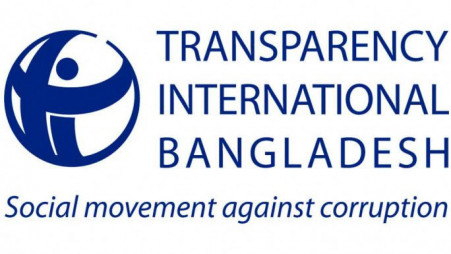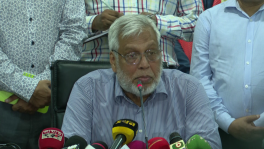End 'prolonged paralysis' of Information Commission, TIB urges govt
The visible indifference to protecting citizens’ right to information is “deeply unfortunate” and marks one of the “major failures of the interim government,” says TIB Executive Director Iftekharuzzaman

Transparency International Bangladesh (TIB) has expressed deep disappointment over the failure to reconstitute the Information Commission more than a year after the fall of "authoritarian rule" and called for immediate action to make the body effective and independent.
The organisation urged the interim government to end the prolonged paralysis of the commission by appointing qualified individuals, free from conflicts of interest, through a transparent process, according to a TIB press release issued today (27 September).
It also demanded necessary amendments to the Right to Information (RTI) Act 2009 and comprehensive reforms to transform the Information Commission into an effective and independent institution.
Marking the International Day for Universal Access to Information, TIB Executive Director Iftekharuzzaman said, "Although the interim government has taken several initiatives towards state reforms, no steps have been taken to make the Information Commission functional or to undertake the necessary reforms to the RTI Act."
Despite civil society repeatedly making recommendations and issuing statements in the media, no action has followed and this visible indifference to protecting citizens' right to information is "deeply unfortunate" and marks one of the "major failures of the interim government," he added.
"We strongly condemn this failure and urge the government to reconstitute the commission without delay," said the TIB executive director.
Even when citizens file RTI applications, in the absence of an active commission, complaints are neither heard nor resolved, Iftekharuzzaman said.
He noted, "Training for information officers and other RTI-related activities are moving at a sluggish pace, creating obstacles to citizens' free access to information. As a result, the free flow of information in state institutions is not being ensured, while a culture of secrecy and reluctance to proactively disclose information continues across government offices."
Although the RTI Act was passed and the Information Commission was established as a statutory independent body, the law was never "effectively implemented due to the lack of political will and visible reluctance of the authoritarian government."
On one hand, there was an absence of coordinated initiatives between government and non-government actors; on the other, some commissioners appointed over the years acted as carriers of partisan ideology, he mentioned.
According to the TIB executive director, the commission failed to play an effective role and as a result, the Act has not set any notable precedent of promoting transparency and accountability in public service institutions or beyond.
To ensure universal access to information and meaningful citizen participation, TIB placed a 15-point set of recommendations, the release added.
Among them are amending and modernising relevant provisions of the RTI Act in line with stakeholder feedback already submitted to the government; bringing political parties and privately owned institutions within the scope of the RTI Act; requiring political parties to disclose detailed accounts of their income and expenditures, with the Election Commission proactively publishing this information on its website in a timely manner.
Besides, recognising the RTI Act as a vital tool to guarantee freedom of expression and the right to dissent, and removing all legal and institutional barriers to its effective implementation; abolishing surveillance mechanisms imposed on citizens through the misuse of multiple repressive laws; and expanding the use of digital tools along with infrastructural improvements to facilitate access to information.



 Keep updated, follow The Business Standard's Google news channel
Keep updated, follow The Business Standard's Google news channel
















